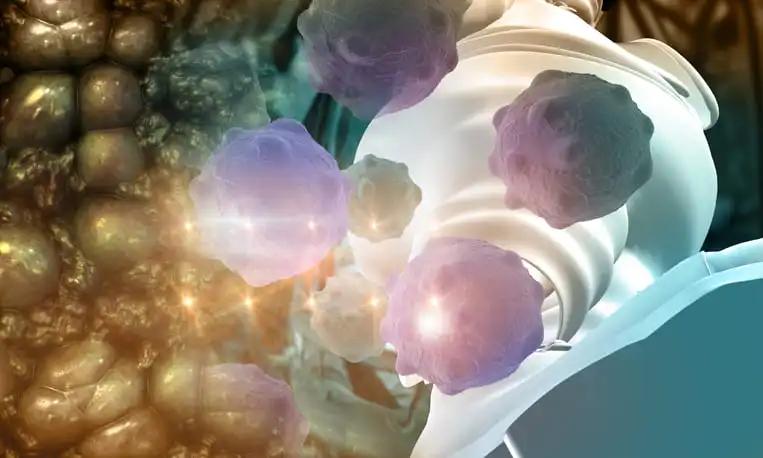KEY TAKEAWAYS
- The study aimed to investigate the genomic alterations in male BC compared to female BC across different subtypes.
- Researchers observed key genomic differences between male and female BC, emphasizing distinct tumor biology and therapy implications.
Arun Kadamkulam Syriac and the team aimed to investigate the genomic alterations in male breast cancer (MaBC) and compare them with those in female breast cancer (FBC) across various subtypes. Although MaBC and FBC share some common genomic alterations, there are notable differences that impact tumor biology and have implications for targeted therapies.
They performed an inclusive analysis using genomic data from Foundation Medicine, categorizing 253 MaBC cases into estrogen receptor (ER)-positive/human epidermal growth factor receptor 2 (HER2)-negative (n = 210), ER-positive/HER2-positive (n = 22), and triple-negative (n = 20). Then 1 ER-negative/HER2-positive case was excluded due to being a unique single case.
The genomics of the final MaBC cohort (n = 252) was compared with the FBC cohort (n = 2708), stratified by molecular subtype, with adjusted P-values. In both the overall MaBC and FBC cohorts, researchers compared the prevalence of mutations in cancer susceptibility genes (CSG), including ATM, BRCA1, BRCA2, CHEK2, and PALB2.
About the comparison of ER-positive/HER2-negative cases, MaBC exhibited increased alterations in GATA3 (26.2% vs. 15.9%, P = 0.005), BRCA2 (13.8% vs. 5.3%, P < 0.001), MDM2 (13.3% vs. 6.14%, P = 0.004), and CDK4 (7.1% vs. 1.8%, P < 0.001), and a decreased frequency of TP53 (11.0% vs. 42.6%, P < 0.001) and ESR1 mutations (5.7% vs. 14.6%, P < 0.001).
In ER-positive/HER2-positive cases, MaBC showed increased short variants in ERBB2 (22.7% vs. 0.6%, P = 0.002), GATA3 (36.3% vs. 6.2%, P = 0.004), and MDM2 (36.3% vs. 4.9%, P = 0.002), along with a decreased frequency of TP53 alterations (9.1% vs. 61.7%, P < 0.001).
Within triple-negative cases, MaBC had fewer alterations in TP53 compared to FBC (25.0% vs. 84.4%, P < 0.001). Additionally, MaBC had a higher frequency of CSG variants than FBC (22.6% vs. 14.6%, P < 0.05), with an increased presence of BRCA mutations in MaBC (14.6% vs. 9.1%, P < 0.05).
The study concluded that although MaBC and FBC share some common alterations, there are several important differences in genomic profiles that are relevant to tumor biology and have significant implications for targeted therapies.
The study received no funds.
Source: https://pubmed.ncbi.nlm.nih.gov/39049124/
Kadamkulam Syriac A, Nandu NS, Clark A, et al. (2024). “Genomic profiling and comparative analysis of male versus female metastatic breast cancer across subtypes.” Breast Cancer Res. 2024 Jul 24;26(1):118. doi: 10.1186/s13058-024-01872-z. PMID: 39049124; PMCID: PMC11267671.



